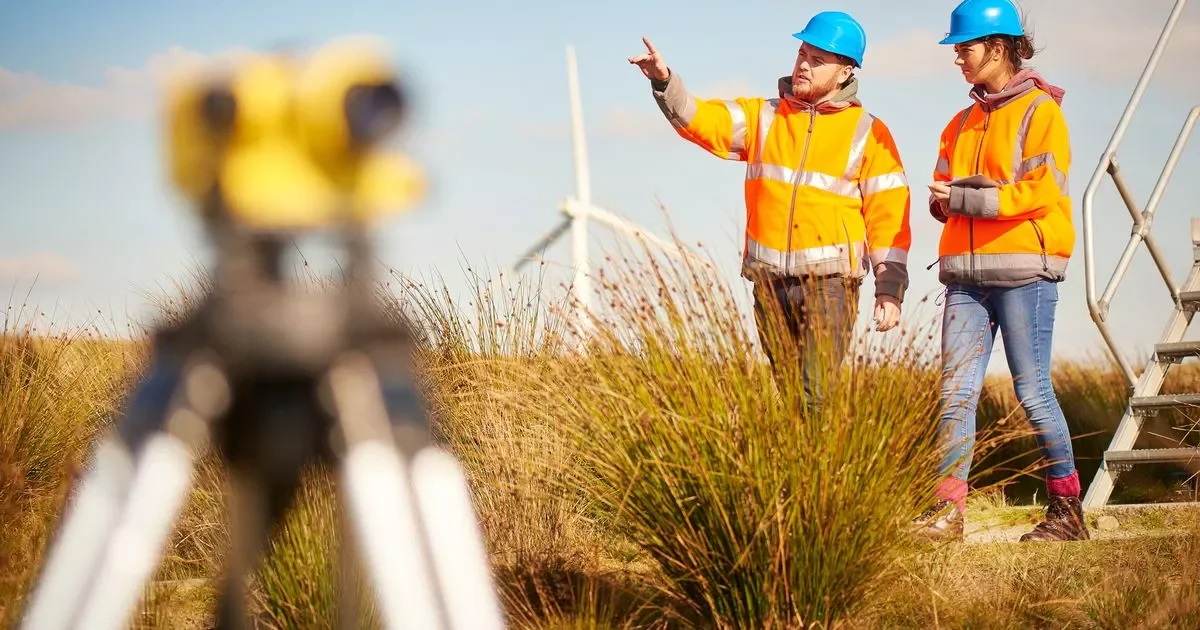Understanding Ecological Surveys for Sustainable Development
In today’s push for sustainable development, ecological surveys have become a crucial first step in ensuring that construction projects respect and protect the natural environment. Before any groundwork begins, a comprehensive ecological assessment is a fundamental step toward protecting our natural heritage and ensuring that construction aligns with long-term sustainability goals.
In this article, we’ll explore why ecological surveys are critical in development projects, how they function, and what benefits they bring to both the environment and developers. From identifying ecological risks to complying with environmental legislation and fostering sustainable practices, ecological surveys play a critical role in shaping development that is future-proof.
What Is an Ecological Survey?
An ecological survey is a systematic study of a site’s natural environment conducted prior to the initiation of a development project. The aim is to assess the presence of valuable or protected species, habitats, and ecosystems, as well as to understand how proposed development might impact them. Depending on the site and type of development, different types of ecological surveys may be required, such as Phase 1 Habitat Surveys, Preliminary Ecological Appraisals (PEAs), or more specialised protected species surveys (e.g., for bats, badgers etc)
The results of these assessments can inform planners, developers, and regulators about the ecological value of the land, and what steps need to be taken to mitigate harm.
If you’re unsure what type of survey your site requires, our team at Lizard Landscape Design can offer you advice and guidance.
The Role of Ecological Surveys in Development Projects
1. Identifying Ecological Risks Early On
Ecological surveys are typically carried out in the early stages of a development project. This timing is essential as identifying ecological risks early allows developers to modify plans before substantial investment is made. For example, if a survey reveals the presence of protected species or sensitive habitats, project managers can adapt designs to avoid these areas or implement measures to minimise impact.
Without this early intervention, projects risk significant delays, legal challenges, or even cancellation.
2. Ensuring Legal and Regulatory Compliance
More and more, environmental laws require ecological surveys before starting development projects. In the UK, for instance, the Wildlife and Countryside Act 1981 and the Conservation of Habitats and Species Regulations 2017 protect numerous species and habitats. Similar laws exist across the EU, US, and other regions.
Failing to comply with these regulations can lead to hefty fines, project delays, or stop-work orders. An ecological survey ensures compliance by documenting the site’s ecological status and providing evidence-based recommendations. Authorities often require these documents as part of the planning permission process.
3. Integrating Sustainable Design Principles
One reason to conduct an ecological survey is the opportunity it provides to embed sustainability into the project from the ground up. A well-conducted survey doesn’t just point out problems, it can also highlight opportunities. For example, green roofs, biodiversity corridors, rain gardens, or retaining hedgerows can be incorporated into the design to support wildlife and enhance environmental performance.
By aligning construction with ecological insights, developers can deliver buildings and infrastructure that are not only compliant, but also environmentally innovative and resilient.
Biodiversity Protection Through Informed Planning
One of the main goals of ecological surveys is to protect biodiversity. As ecosystems come under increasing pressure from urban expansion, habitat fragmentation, and climate change, understanding a site’s ecological context is more important than ever.
A well-executed survey provides vital insights into the species and habitats present, allowing planners to make informed decisions that minimise harm and, where possible, enhance ecological value.
These insights enable developers to avoid disrupting critical habitats. Sometimes, just a small shift in design, such as moving a road or building a few metres, can safeguard an area that supports rare or protected species. Similarly, timing construction activities to avoid sensitive periods, like breeding seasons for birds or amphibians, helps prevent population decline. Where habitat loss is unavoidable, ecological surveys guide the creation of effective mitigation or compensation strategies, such as habitat restoration or biodiversity offsets. By embedding these practices into the planning process, developments can move forward responsibly while contributing to the protection and resilience of the natural environment.
Long-Term Sustainability Benefits
The benefits of conducting ecological surveys extend well beyond immediate compliance and conservation. When ecological considerations are embedded in development plans, they contribute to a more sustainable outcome in several key ways:
Improved ecosystem services: Healthy ecosystems regulate air and water quality, support pollination, and mitigate flood risks, all of which have direct economic and social benefits.
Increased resilience to climate change: Biodiverse environments are more adaptable to climate fluctuations. Maintaining green spaces and natural buffers can help developments withstand extreme weather.
Public trust and support: Projects that demonstrate environmental stewardship are more likely to gain community support, investment, and long-term success.
Incorporating ecological insights from the start often leads to more cost-effective solutions than trying to retrofit sustainability later. It also positions developers as proactive leaders in responsible growth.
Making Sustainability Standard Practice
Understanding the role of ecological surveys in sustainable development is essential for anyone involved in construction, planning, or environmental management.. These surveys are more than a regulatory checkbox, they are a vital tool for balancing human development with ecological integrity.
By identifying ecological risks early, ensuring compliance, and integrating sustainability into project design, ecological surveys help create developments that respect the natural world. In doing so, they support the broader goals of biodiversity conservation, climate resilience, and long-term environmental stewardship.
Whether you’re planning a housing estate, commercial site, or infrastructure project, prioritising an ecological survey is a smart, sustainable choice.
Get in touch with us today if you’d like to discuss a project.


